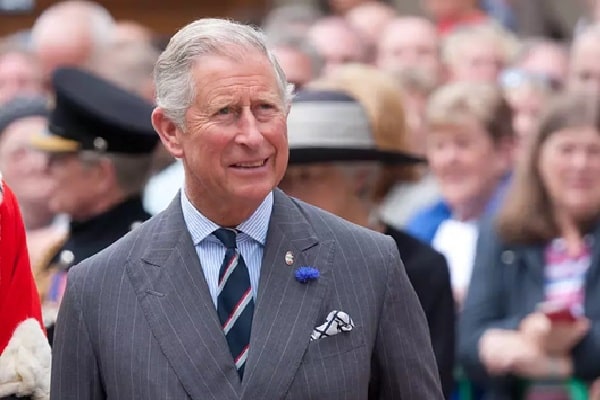When it comes to environmental advocacy, King Charles has long been a pioneer, and his approach to sustainable travel is no exception. As tourism and transportation continue to contribute significantly to global carbon emissions, the King’s initiatives provide a shining example of how travel can be responsible, eco-conscious, and impactful. From promoting low-carbon transportation to encouraging eco-friendly tourism, his sustainable travel efforts demonstrate that protecting the planet and enjoying mobility can go hand in hand.
Here’s a closer look at how King Charles is shaping the future of sustainable travel and inspiring individuals, businesses, and governments worldwide.
The Vision Behind King Charles’s Sustainable Travel Initiatives
King Charles has spent decades championing environmental causes, consistently urging industries to embrace greener practices. His vision for travel is no different: a world where tourism and transportation coexist harmoniously with nature.
Key elements of his vision include:
-
Reducing carbon footprints across all modes of travel
-
Promoting green technologies in transportation and tourism
-
Encouraging travelers to make conscious choices that protect ecosystems
By blending innovation with practical solutions, King Charles highlights that travel doesn’t have to come at the planet’s expense.
1. Championing Low-Carbon Transportation
One of the cornerstones of King Charles’s sustainable travel initiatives is low-carbon transportation. He actively promotes alternatives to traditional fossil-fuel-powered vehicles, aiming to reduce the environmental impact of mobility.
Encouraging Electric and Hydrogen Vehicles
King Charles has set a personal example by transitioning to electric and hydrogen-powered vehicles. Beyond his personal choices, he advocates for:
-
Widespread adoption of EVs for both individuals and businesses
-
Investment in hydrogen-powered transport for long-distance travel
-
Incentives to make low-emission vehicles accessible and affordable
By demonstrating the practicality of these technologies, he encourages everyone to reconsider how they get around.
Investing in Sustainable Public Transport
Transportation isn’t just about cars. King Charles emphasizes efficient and eco-friendly public transit systems:
-
Modernized rail networks to reduce reliance on cars
-
Improved bus services with low-emission engines
-
Enhanced cycling infrastructure to encourage active travel
Making public transport more convenient and sustainable is a critical step toward reducing the carbon footprint of cities and tourist destinations.
2. Pioneering Sustainable Aviation
Aviation remains one of the toughest sectors to decarbonize, but King Charles has been at the forefront of promoting greener air travel.
Supporting Sustainable Aviation Fuel (SAF)
He actively champions Sustainable Aviation Fuel (SAF), which is produced from:
-
Waste materials like used cooking oil
-
Algae and other renewable sources
-
Advanced biofuels that reduce emissions compared to traditional jet fuel
SAF is helping airlines lower their carbon footprint while maintaining the convenience of air travel.
Encouraging Carbon Offset Programs
In addition to SAF, King Charles promotes carbon offset initiatives, which allow travelers and airlines to compensate for emissions by funding:
-
Reforestation and tree-planting projects
-
Renewable energy installations
-
Conservation programs that protect wildlife and habitats
These strategies make flying more environmentally responsible and help counterbalance unavoidable emissions.
3. Supporting Eco-Friendly Tourism
Travel isn’t just about getting from point A to B—it’s about how you engage with destinations. King Charles encourages tourism that respects natural and cultural heritage.
Sustainable Hotels and Resorts
He urges the hospitality sector to adopt environmentally conscious practices, such as:
-
Energy-efficient operations, including solar power and LED lighting
-
Water conservation measures and waste reduction programs
-
Local sourcing of food and materials to support communities
As a result, many hotels and resorts are now implementing green certifications and eco-friendly standards to reduce their environmental impact.
Protecting Biodiversity and Natural Habitats
King Charles also partners with conservation organizations to ensure tourism doesn’t harm fragile ecosystems. His support extends to:
-
Wildlife reserves and sanctuaries
-
Marine conservation projects
-
Rewilding initiatives that restore natural habitats
Through these efforts, visitors can enjoy nature responsibly without compromising biodiversity.
Also Read : Politicser.com Pepperboy Travel Archives: Discover Hidden Travel Gems
4. Promoting Responsible Travel Behavior
Even the greenest technology won’t succeed without responsible travel behavior. King Charles emphasizes the importance of educating travelers about eco-friendly choices.
Slow and Mindful Travel
He advocates for slow travel, encouraging visitors to:
-
Immerse themselves in local culture
-
Spend longer periods in one destination to reduce frequent transportation emissions
-
Appreciate nature without causing disruption or degradation
This approach not only benefits the environment but also enhances the travel experience.
Raising Awareness of Sustainable Practices
Through speeches, campaigns, and partnerships, King Charles spreads knowledge about practical eco-friendly habits, including:
-
Reducing single-use plastics while traveling
-
Supporting local economies through ethical spending
-
Respecting wildlife and natural habitats
Awareness and education are vital for creating lasting change in travel behavior.
5. Leading by Example
Actions speak louder than words. King Charles demonstrates that sustainable travel is practical, stylish, and achievable. His personal choices, public campaigns, and partnerships with industry leaders provide a blueprint for others to follow.
-
Using low-emission vehicles for official travel
-
Prioritizing train journeys over short-haul flights when possible
-
Choosing accommodations that follow strict sustainability practices
By walking the talk, he encourages individuals, corporations, and governments to adopt similar eco-conscious strategies.
6. Encouraging Green Technology in Travel
King Charles understands that innovation is key to sustainable travel. He supports research and adoption of green technology across multiple sectors:
-
Advanced battery technology for EVs
-
Renewable energy-powered transport systems
-
AI-driven tools to optimize travel routes and reduce emissions
By promoting technological solutions, he ensures that sustainability is integrated seamlessly into modern travel.
7. Collaborating with Governments and Businesses
King Charles’s initiatives aren’t limited to personal advocacy—they involve partnerships with governments and businesses worldwide.
-
Governments are encouraged to implement policies that incentivize low-carbon transportation
-
Airlines and hospitality providers are urged to adopt greener practices
-
Educational institutions and NGOs collaborate to raise awareness and develop eco-conscious travelers
These collaborations help embed sustainable travel into mainstream policy and business practices.
8. Inspiring Global Travelers
King Charles shows that every traveler can make a difference. By setting clear examples and providing guidance, he motivates people to:
-
Choose environmentally responsible transport options
-
Participate in eco-friendly tourism and conservation projects
-
Spread awareness about sustainable travel practices
His influence demonstrates that small, conscious decisions—like taking the train instead of a short flight—can collectively create a significant positive impact.
9. The Future of Sustainable Travel
King Charles’s vision for sustainable travel goes beyond today. He’s shaping a future where:
-
Tourism supports local communities and economies
-
Natural habitats are protected while still accessible for visitors
-
Global travel becomes climate-conscious without sacrificing experiences
By leading through example, promoting innovation, and fostering awareness, he’s paving the way for a generation of responsible travelers who prioritize the planet alongside adventure.
Conclusion
King Charles sustainable travel initiatives are more than policies—they’re a call to action. From low-carbon transportation to sustainable aviation, eco-friendly accommodations, and responsible travel behavior, his approach shows that protecting the environment and enjoying global mobility can go hand in hand.
By championing green technologies, conservation projects, and mindful tourism, King Charles continues to inspire individuals, industries, and governments to rethink how we travel. Every train ride, electric vehicle, and eco-conscious choice contributes to a more sustainable future, ensuring that travel can remain a source of joy without compromising the planet.
For anyone passionate about responsible travel, his initiatives offer a roadmap: embrace innovation, make conscious choices, and travel in a way that respects both people and the planet.





